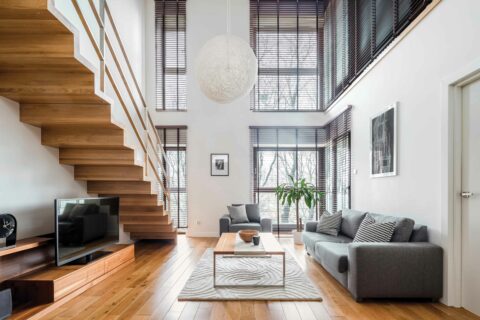February 11, 2021 • Buying
Tips and Tricks for Financing a Vacation Home
By Trisha Isaac, Canmore Mortgage Solutions
Many of us are staying close to home for the foreseeable future, and many people are still looking for that perfect getaway. Have you considered buying a vacation home? After all, nothing is safer than spending time in our own backyard!
A vacation home can be an excellent investment and buying one in the mountains isn’t impossible. The key to finding an affordable vacation home is planning your purchase and working with experts along the way.
If you’re thinking about making the mountains your vacation destination, here are a few tips for financing a vacation home:
How will you use your home?
There is a difference between buying a vacation-only home, buying a secondary home and buying a rental property.
Vacation and Secondary Homes are zoned and used as either residential, rural or seasonal. They have central heating and year-round road access. Vacation-Only Homes do not need to be winterized. No permanent heat source is required and seasonal road access is acceptable. To get an idea of the difference, think condo in Canmore versus a small cabin on the lake.
One of the most common thoughts when purchasing a secondary home is: “I’ll just rent it out when I’m not there.”
If only it were that simple.
Lenders and municipalities have their own requirements for short- and long-term rental properties. If you plan to buy a secondary home and rent it out, you need to let the lender know when you submit your credit application. Lenders treat owner-occupied secondary homes different from rental properties and it is considered mortgage fraud to mislead a lender on your intended use.
Most mortgage lenders do not want to lend on commercial type properties like short-term rentals because these properties come with a lot of complications.
If you decide a short-term rental works for your situation, research the community’s rules. Canmore controls the location of short-term rentals with zoning. Other locations control through municipal rules such as licensing and annual inspections to confirm units are up to code with fire, safety and parking. Banff does not allow second homes or short-term vacation rentals.
Other Considerations
1. Know your Required Down Payment
For a second home, you only need 5% down for properties less than $500,000. On properties between $500,000 and $1,000,000, a 5% down payment is required up to $500,000, with an additional 10% on the remainder. If you plan to rent your home, your minimum down payment will be 20-35%.
Qualified home buyers may use traditional sources for their down payment like savings, investments, non-repayable gifts, existing home equity and property sale proceeds.
2. Consider Condo Fees
A condo might look more affordable with a lower purchase price, but they come with their own extra costs: condo fees. These fees can include basics like heat, water and electricity, or they may include maintenance like snow removal. Fees and services will vary by condo building.
If you do not plan to use your condo regularly, fees that include snow removal might satisfy your insurance, since a snow filled driveway or walkway is a sure sign of an empty home.
3. Plan for Property Taxes
Nobody wants to talk about taxes. Part of making a vacation home affordable also means looking at what you may have to pay in taxes each year. Annual taxes are standard property taxes based on your home’s assessed value. The average 2019 tax amount in Canmore was approximately $2,000.
4. Investigate Home Improvements
Did you know that you can add house improvements to your mortgage on a secondary home? The purchase plus improvements program is eligible for second homes. Need to add that second bathroom? No problem! Ask your mortgage broker for details if renovations are in your secondary home’s future.
Should You Even Buy?
Of course! You can and should if you are prepared.
Financing a vacation home is not only achievable, but it can also be affordable with the right preparation and research. Before you start to think it’s out of your reach, talk to a real estate agent to find out what’s available in your price range.
There are plenty of options to consider when purchasing a vacation home, but the thing I stress with clients is to spend within your means. Without considering condo fees or how you will be taxed, the costs may get out of hand down the road.
If you are looking into financing a vacation home, reach out to a qualified mortgage broker! Brokers are here to help you navigate your options to find YOU the affordable place to escape to, especially if you are looking within the beautiful Bow Valley area.



